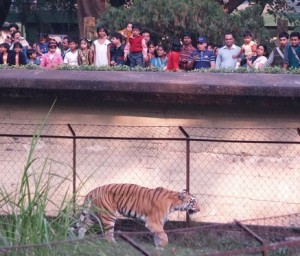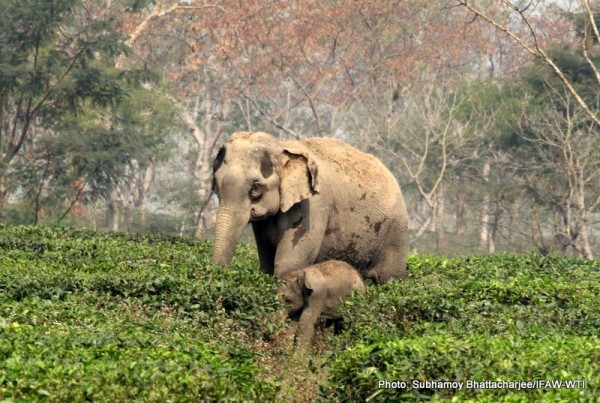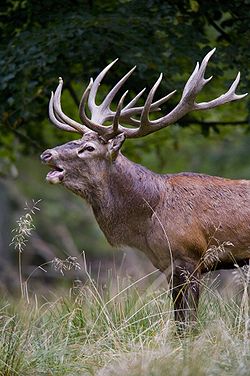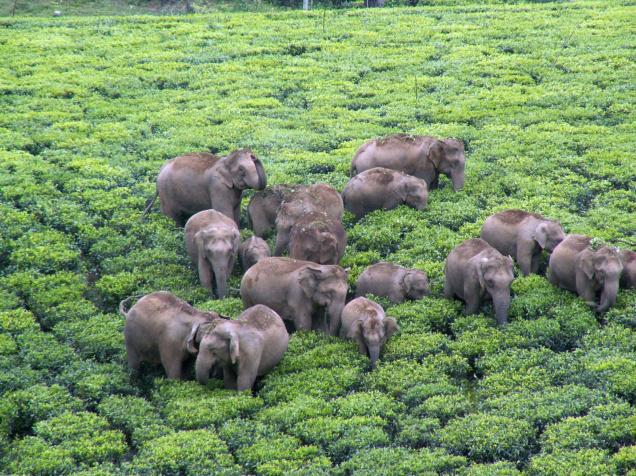 What could be common among Punjab National Bank (PNB), Steel Authority of India Limited (SAIL) and actress Priyanka Chopra? They are all adopting Zoo animals in response to Jharkhand Zoo Authority’s request for sponsoring zoo animals under a novel scheme.
What could be common among Punjab National Bank (PNB), Steel Authority of India Limited (SAIL) and actress Priyanka Chopra? They are all adopting Zoo animals in response to Jharkhand Zoo Authority’s request for sponsoring zoo animals under a novel scheme.
It is an encouraging trend set by these corporate and celebrity actress in providing sustenance and improved amenities for the Zoo animals. In Jharkhand state, SAIL has already offered Rs.35.88 lakhs for adopting pachyderms, PNB from April 1st is adopting all the pea fowls of Birsa Munda Biological Park in the state for the next five years at a cost of Rs.1.85 lakh. Priyanka chopra is to adopt a tigress by name ‘Durga’ and is sending a draft for an amount of Rs.2.24 lakh.
Priyanka chopra was especially interested in this scheme as she has fond memories of Jharkhand as home of her grandparents. She had sent a letter to Director of Birsa Munda Biological park, A.K.Singh expressing her wish to adopt a tigress or a tiger for a year with the mission ‘save wild life-save mankind’.
She stated “I always want Jharkhand to prosper and a small gesture on my part can encourage others to follow suit.”
The trend to adopt zoo animals is definitely on the rise among corporates and celebrities.
Quite recently, cricketer Zaheer khan adopted ‘Brahma’ a tiger from Jayachamarajendra Zoological park, Mysore. Anil kumble had already adopted a Giraffe and Javagal Srinath, a Jaguar. Both the Mysore zoo and Bannergahatta National park Bangalore, have witnessed marked interest in the Adoption drive.
Birsa Munda Biological Park’s director, P.K.Verma, said “Spending Rs 59,000 annually to own a leopard is not a big deal for a large number of wild animal lovers. Flocks of birds like mute swan and grey lag goose come even cheaper.”
This novel idea of adoption of animals was conceived in January this year by the Jharkhand zoo authority, though the seed for the idea was formulated as early as 2009.
As with any government work, even this scheme did not escape red tapism. Like all other government agency the funds collected by donations were to be directed back to the government fund itself. Thus, the money given as donations went to government first and then released to the treasury for disbursement elongating the total process of the money finally reaching the animals.
Verma says “It was suggested by senior officials of the state government to constitute a society which would enjoy flexibility in handling the money, especially in terms of receiving the funds and then spending them according to need.”
The outcome was the formations of the Jharkhand Zoo authority, in May 2010, registered with the state government (societies registration act 1861). This society is constituted of 14 board members viz., representatives of the Birsa Munda biological park, officials of state forest department, chief engineer public works department, senior SP of Ranchi, dean veterinary colleges, Ranchi deputy commissioner and some non-governmental wild life activists. The first meeting was held in January 2011 to discuss in detail the adoption scheme.
The expenditure incurred on the animal proposed for adoption depends mainly on its food habits and calculation is also based on salaries on attendants, medical expenditure on the animal and other miscellaneous expenses.
Verma said “The rate proposed for adoption is based on 65-70 per cent of the net annual expenditure incurred on the rearing of the animals in the zoo.”
The adoption scheme is surely a great way to ensure that animals live well in zoos. It also gives celebs and companies a chance to showcase their love for animals and thereby enhance their social stature. Hopefully the money donated would not fill government official pockets and would be truly used for the animals. It will then be a job well done.
– Guest Writer
Article source: TOI
Related Stories:
Cricketer Zaheer Khan Adopts a Tiger






Sounds like a noble deed indeed, but I personally would not like to contribute towards any project that imprisons wild animals – zoo, to me, represents, a prison for the creatures who would rather roam free in the wilds. I used to love visiting zoos as a child, but with age, have lost my childlike enthusiasm to see captured animals – now I find the sight painful.
You are right, some of the zoos indeed keep animals in the most appalling conditions. But sometimes zoos are the only place where animals can find safety with more and more human encorachments in the forests. While zoos can never replace wild habitats, they do offer a little chance of survival for the creatures.
Couldnt agree more with that, very attractive article
It’s really a nice and helpful piece of information. I’m glad that you shared this helpful info with us. Please keep us informed like this. Thanks for sharing.